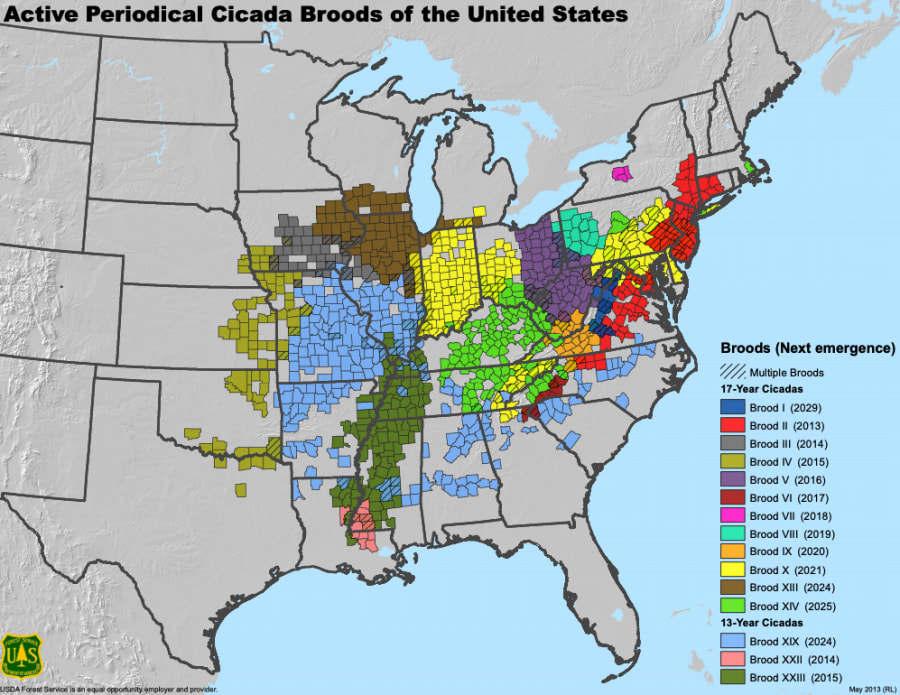Cicadas are having a moment.
It’s going to be a big year for the insects as parts of the U.S. will experience what some are calling a “cicadapocalypse.”
Recommended Videos
Two broods of cicadas are emerging in the same year for the first time since 1803.
“It will be a confluence of creatures the likes of which hasn’t been seen in the United States since Thomas Jefferson was president — and won’t happen again until 2245,” CNN reported.
The two emerging broods include Brood XIX and Brood XIII. Brood XIX is also known as the Great Southern Brood. It’s the largest periodical cicada brood and it emerges every 13 years. Its appearance will coincide with the emergence of the Brood XIII, also known as the Northern Illinois Brood, which emerges every 17 years.
But, there’s some disappointing news for insect lovers in Texas — it’s not something we’ll experience here.
Periodical cicadas vs. annual cicadas
Cicadas live most of their lifecycle underground as nymphs. They emerge to molt into a winged adult and mate. The adult versions only live for five to six weeks.
Groups of cicadas that share the same emergence years are called broods.
Brood XIX and Brood XIII are periodical cicadas, meaning they take many years to complete their lifecycle and emerge above ground, while annual cicadas emerge every year.
In Texas, our typical cicadas are annual and are often referred to as dog-day cicadas because they appear in late summer. According to Molly Keck, an entomologist with the Texas A&M AgriLife Extension Service, the dog-day cicada’s lifecycle is 2-5 years, but there is never a summer when some don’t emerge or a summer that they all emerge at once.
“We have 55 different species in Texas, and even the same species is always overlapping,” Keck said.
Texas does have one periodical cicada brood — Brood IV, also known as the Kansas brood. It last emerged in 2015 and will emerge again in 2032 in a small portion of North Texas, Keck said.
While the Brood XIX and Brood XIII cicadas won’t emerge again together until 2245, the U.S. will experience a co-occurrence of other cicada broods. According to the University of Connecticut, it last happened in 2015, and it will happen again in 2037.

More cicada facts
- Only male cicadas “sing.” They do so to attract females.
- Cicada nymphs feed on the juices and sap of tree roots while adult cicadas suck fluids from shrubs and trees. Texas A&M AgriLife Extension Service says they are not considered to be plant pests.
- Scientists believe that cicadas spend most of their life underground to avoid predators. They surface as a large group as a survival technique. While birds and other predators will eat some of the cicadas, others can survive to breed and lay eggs.
- Cicada nymphs leave a half-inch hole when they emerge out of the ground, creating improved aeration and water filtration for lawns.
- Adult cicadas do not sting or bite humans, and they do not carry diseases.
- The emerged nymphs climb onto tree trunks, low plants or other objects to molt. The adults break out of their old skins through a crack along the back and leave the exoskeleton behind.
- Cicada shells are good for your garden contributing nitrogen and other nutrients.
- Cicadas are edible. According to cicadasafari.org, they taste best when they are still white. They are low in fat and high in protein and have a good balance of vitamins. Apparently, they taste like canned asparagus.



